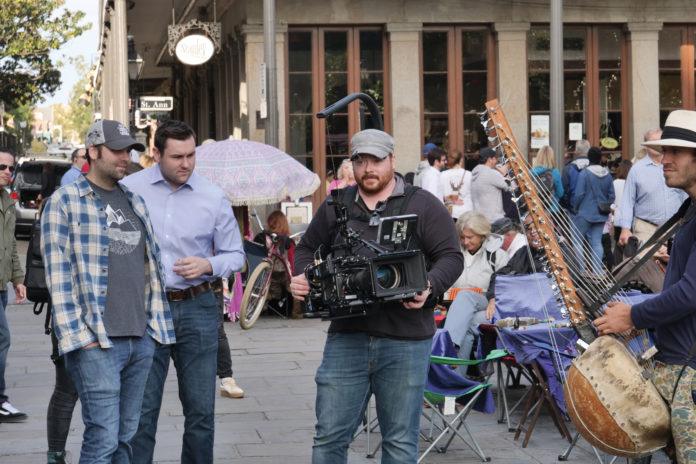As a University of Missouri student, Alex Lindley learned through grieving the death of two friends how the stigma of mental illness keeps people from seeking help. In response, he founded a project that has become a mission for the newly minted lawyer and a group of committed alumni, including his Sigma Chi brothers.
By the time Alex Lindley was 22, he had delivered two eulogies for close friends who had died by suicide. He wasn’t going to give a third.
In September 2014, a few months after his childhood best friend and Mizzou classmate Ryan Candice took his own life, Lindley, BA ’15, gathered a group of friends and shared his vision: a documentary film that not only would tell Candice’s story but also work to eradicate the stigma of mental illness, illustrate the importance of suicide awareness and prevention, and expose the inadequacies in mental health funding, legislation and available treatment.
With that, the nonprofit Project Wake Up was born.
The Documentary
Lindley was senior psychology major at Mizzou when he launched a crowdfunding campaign that overnight raised $10,000 to create the documentary film. “Man, that was way low,” says Lindley three years later. “We didn’t know anything about real filmmaking.”
He does now.
Although the campaign far surpassed its goal, raising more than $25,000, it was only enough to produce a 12-minute film in 2015 that previewed the full-length feature and helped raise the more than $500,000 for what he envisioned.
Significant support came from alumni of Lindley’s fraternity, Sigma Chi, including Larry McMullen, BA ’53, JD ’59. As a longtime adviser to the fraternity, McMullen had gotten to know Lindley and was impressed by his determination, dedication and passion. He could also relate to the unrealistic expectations placed on fraternity members to put on a façade of toughness. “Male pride being what it is, oftentimes, if a young man wants to talk about feelings he’s having of hurting himself, that’s viewed by him as a sign of weakness,” McMullen says. “It’s a challenge to break through that.”
After McMullen successfully represented a family who sued the Department of Veterans Affairs for inadequate medical treatment of post-traumatic stress disorder that led to their son’s suicide, the Husch Blackwell attorney was even more committed to supporting Lindley’s cause. “He’s a very effective leader,” McMullen says. “He has wonderful instincts to try to help people.”
Filming of the full-length documentary began in December 2017 with suicidology expert Thomas Joiner of Florida State University, followed by former Rep. Tim Murphy of Pennsylvania, health care negligence attorney Skip Simpson, American Association of Suicidology president and suicide exposure researcher Julie Cerel, Rep. Joe Kennedy of Massachusetts, and executive director of the National Center for Veterans Studies Craig Brian.
Serving as executive producer has been Lindley’s mission and labor of love. In between law school classes at St. Louis University, where he graduated in 2018, he contacted psychologists and mental health experts and booked flights and hotels so renowned scientists and politicians could be filmed for the doc.
Lindley hopes to make the film available on streaming services. During the past two years, Netflix has released both a TV series (13 Reasons Why) and a movie that have been criticized for their depictions of mental illness. In the horror film Bird Box, monsters drive people to kill themselves — unless they have a mental illness. Instead of taking their own lives, those with mental illness are consumed with evil and help the monsters destroy humanity. The film was released a month and a day after the journal Psychiatric Services published evidence that the series 13 Reasons heightened suicidal thoughts among youth viewers who were already contemplating taking their own lives.
“We want to use the documentary as a compassionate, science-based vessel to remedy that situation and put out something that will help,” Lindley says. “Our film shows this issue really touches everybody in one way or the other. It shows how ridiculous it is to stigmatize it.”
Wake Up Chapters
Project Wake Up vice president and Wake Up executive producer Danny Kerth, BJ ’15, lost his father to suicide when he was in fourth grade and never talked about it to anyone. When Candice died by suicide, “It was a wake-up call for me,” Kerth says. “We need to do something about this.”
As students in 2015, Kerth, Lindley and their friend group participated in RESPOND, an eight-hour training the MU Counseling Center offers to cover symptoms associated with mental health problems and ways to respond. “It helped us figure out what we, as friends, could be doing better to help one another and figure out how to approach friends who might be going through things,” Kerth says.
Inspired by the experience, the students formed the Mizzou Student Suicide Prevention Coalition, which continues to raise awareness and funds that connect students to campus suicide prevention resources; provide a voice to individuals, families and friends who have been affected by suicide; and stage events as outlets for healing.
As production on the documentary wraps up, Kerth is spearheading the expansion of the coalition’s model to college campuses nationwide via Wake Up chapters. More than a dozen schools are interested.
Ryan J. Candice Memorial Scholarship
Project Wake Up also awards scholarships to students who plan to provide mental health care in Missouri. According to the Robert Wood Johnson Foundation, Missouri’s approximately 17 mental health providers for every 10,000 residents is below the national average and insufficient to serve the population.
So, on Mizzou Giving Day 2018, Project Wake Up pledged $25,000 to create the Ryan J. Candice Memorial Scholarship. In 2019, the nonprofit added $20,000 to the fund, which Mizzou Advancement projects will award between $1,000 and $1,500 a year to an MU social work student. “People typically think of psychologists or psychiatrists, but social workers are actually the largest group of mental health services providers in the U.S.,” says Dale Fitch, who directs the School of Social Work. The nonprofit continues fundraising to increase the number of students receiving such scholarships as well as the size of the scholarship endowments.
Lindley, an attorney in St. Louis, also pushes for legislation to boost mental health care funding in Missouri. “The stigma surrounding mental health at Mizzou is already better,” he says. “You can see on social media. The students are more receptive, more compassionate. Our goal is to keep encouraging people to destigmatize mental illness and to start conversations so that others feel comfortable reaching out for help.”





















